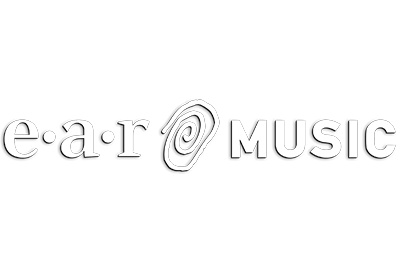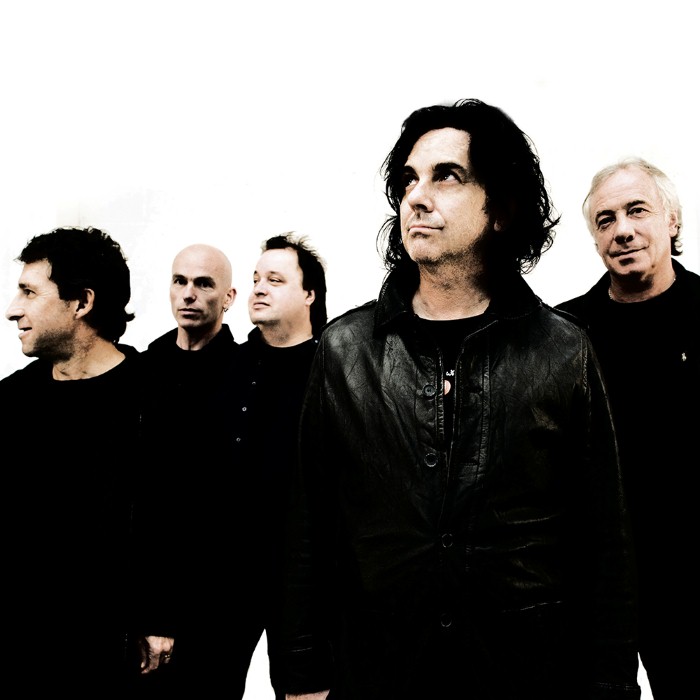Album Releases  view
view
Members
5 Male
Origin
 Aylesbury, Buckinghamshire, England
Aylesbury, Buckinghamshire, England
Genre
 Progressive Rock
Progressive Rock
Style
Rock/Pop
Mood
Rousing
Born
5 Male
Origin
Genre
Style
Rock/Pop
Mood
Rousing
Born
1978
Active 1978 to Present...
Cutout
Current Record Label
Alternate Name
Silmarillion
8 users
7 users
7 users
7 users
7 users
 Incommunicado |  Lavender |  Sugar Mice |
 Market Square Heroes |  Garden Party |  He Knows You Know |
 Lady Nina |  Assassing |  Warm Wet Circles |
Artist Biography
Available in:
Taking the name from J.R.R. Tolkien's book "The Silmarillion", the band was originally formed in Aylesbury, Bucks, UK, in December 1978, featuring Mick Pointer on drums, Steve Rothery on guitars, Doug Irvine on bass and vocals, and Brian Jelliman on keyboards. By early 1981, the band's line-up changed with the departure of Doug Irvine. He was replaced by Diz Minnitt and Scotish singer Derek William Dick (alias Fish), who had been involved together in a short lived experimental band called Stone Dome Band, prior to seeking like minded souls, first in the Cambridge scene and later the Scottish Borders. At this stage, the creation of this new line up led to a burst of creativity and the band change it's name to Marillion and recorded their first professional demo tape in July, produced by Les Payne and featuring the tracks "He Knows You Know", "Garden Party" and "Charting the Single".
Marillion first appeared in a recognisable form in early 1982, when the line-up of Fish (vocals), Steve Rothery (guitar), Mark Kelly (keyboards), Pete Trewavas (bass) and Mick Pointer (drummer) began exhaustively touring around the Aylesbury and London area. The combination of imaginative, enthralling music and image filled lyrics soon found favour amongst their expanding fan base and journalists who had tired of some of the more formulaic music that dogged the live scene of the time. Several sold out nights at the legendary Marquee club forced the record labels to recognise the impact of their music and a deal with EMI was quickly signed.
The release of such classic albums as ‘Script For A Jester’s Tear’ (1983) and Fugazi (1984) bolstered their reputation, and their line up was further strengthened when drummer Ian Mosley replaced Pointer in 1984. ‘Misplaced Childhood’ followed in 1985 (which included the hit singles ‘Kayleigh’ and ‘Lavender’) and promptly hit the coveted number one slot. But, following the tour to support 1987's ‘Clutching At Straws’, Fish suddenly and unexpectedly quit the band to pursue a solo career. He was replaced by the equally imposing figure of Steve Hogarth whose input helped to freshen and augment their sound.
Predictions of doom were swiftly dispelled, as across a further TWELVE albums, Hogarth – along with existing members Steve Rothery (guitar), Mark Kelly(keyboards), Pete Trewavas (bass), and Ian Mosley (drums) – reinvigorated and constantly redefined Marillion’s sound. They forged into new musical territories with a succession of inventive, emotional albums, displaying little regard to the vagaries of the musical "Fashion Police", or radio playlists. The line-up remains unchanged to this day.
The resulting albums of ‘Season’s End’ (1989), ‘Holidays In Eden’ (1991), ‘Brave’ (1994) ‘Afraid Of Sunlight’ (1995), ‘This Strange Engine’ (1997) and ‘Radiation’ (1998) proved Marillion’s continued determination to release inventive and emotional music, irrespective of whether their music was picked up by radio stations or made an impact on the charts.
By 1997, Marillion had realised that the Internet provided an ideal opportunity to nurture a closer contact with the fans, and a fan instigated whip round on their e-mailing list produced enough funds to allow the band to tour the USA. After the release of the album ‘Marillion.com’ in 1999, which flagged their newly launched web-site and record label (the aptly-named Intact imprint), they freed themselves up to produce some of the finest music of their career. The revolutionary concept of asking their fans to pre-order and pay for the recording costs an album some 12 months in advance of its release that hit the headlines in 2001.
Astonishingly, over 12,000 of their fans pre-ordered and an additional deal was struck with EMI to market the resulting ‘Anoraknophobia’ album. A similar campaign was also launched to fund the band’s latest release, ‘Marbles’ but this time all the money raised is going into a campaign fund to promote the album. In terms of fan loyalty, it can be said that Marillion have an international underground following to rival the mainstream.
When singles ‘Don’t Hurt Yourself’ and ‘You’re Gone‘ breached the UK top 20 – the latter making it all the way to number 7 – jaws dropped right across the music world.
Not bad going for a band without major label backing.
But it was merely the latest twist in the history of a group who have held on to the conviction that what they’re doing MEANS something more than entertainment or selling records.
The band has evolved into a vibrant musical force – to those who already love Marillion, they’re something special; to everyone else they’re a love affair waiting to happen.
Wide Thumb

Clearart

Fanart




Banner

User Comments
 No comments yet..
No comments yet..


















